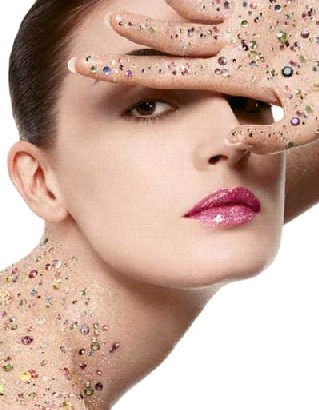Summer is about baring skin and showing off the beautiful (fake) summer tan you have. But in order to look good baring that skin, you need to take some time to ready your skin and reverse the signs of neglect you showed your skin during fall, winter and spring. Summer could be a dangerous time for our face skin. Heat, wind, dust, and excessive sun exposure, can easily damage its delicate cells and pores. The changes in the seasons and weather conditions make it essential to modify and adjust skin care techniques so as to fittingly combat the varying climates. As such, there is no better time than now to get all the know-how on summer skin care so that you can start on the road towards prevention and win the battle against sun damage and ageing skin.
While your skin needs an extra dose of moisturising during the arid winter season, the summer months still require moisturising to brace your skin against summer dryness and burning. Moisturising of the skin is not limited to external application of creams and lotions. We can also moisturise our skin from within by bringing small changes to our diets.
During the summer, fatty and oily foods should be minimised. Instead, one should increase intake of water and fibrous foods. Hard drinks should also be cut down and replaced by natural and cooling drinks such as juices and herbal teas.
The best fruits for your skin during this season would be hydrating agents such as melons and citrus fruits. Water intake should also be increased during summer. The ideal quantity of water to have daily would be eight glasses measuring 200 ml each. The diet you follow will reflect in the health of your skin with drastic impact.
Follow these summer skin tactics and you’ll be good to glow.
Don’t skip the moisturizer: Your skin may be less dry these days, but don’t banish that moisturizer. Instead, switch to lighter, water-based formulas for both face and body, and swap your heavy eye cream for a lighter serum.
Slather on the sunscreen: Choose products that provide broad-spectrum protection (they block both ultraviolet A (UVA) and ultraviolet B (UVB) rays) with a minimum sun protection factor (SPF) of 15. Apply sunscreen liberally (at least a one-ounce shot-glass-size amount) before you go outside; reapply every two hours and always after swimming. And don’t let those clouds fool you — apply sunscreen every single day!
Bring on the balm:Lips are susceptible to skin cancer too, so be sure to wear a broad-spectrum sun-protective lip balm with an SPF of at least 15 to keep lips sun-safe and supple.
Switch to summer makeup: Trade liquid foundation for a lighter, mineral-based powder with a minimum SPF of 15. Skip the creamy blush and instead go for a natural-looking glow with a touch of bronzing powder. Use waterproof mascara for streak-free swimming, and ditch that lipstick for a dab of tinted gloss.
Don sun-protective clothing: No need to cover up head to toe, but do consider a long-sleeved shirt, wide-brimmed hat, and sunglasses at the beach, at least for part of the day. Remember, tightly woven, darker fabrics are better sun blockers than lightweight, light-hued fabrics, or try clothing especially made for sun protection.
Go for the faux: Minimize your chances of wrinkles, age spots, and skin cancer by skipping the suntan altogether and opting for a sunless self-tanner, spray tan, or airbrushing.
Exfoliate regularly: Sun, sand, sweat, and sunscreen only increase the amount of dead skin cells that build up on your face and body. Slough them off with an exfoliating scrub or loofah a few times each week. (A beautiful bonus: Exfoliating will also help your self-tanner go on more evenly and prevent streaking.)
Practice smart shaving: Short shorts and sundresses mean more frequent shaving sessions, and that can irritate and/or dry out skin. This season, be sure to replace your razor often, shave only after you’ve been in the shower for a few minutes (when your hairs will be softer), use a moisturizing shaving cream or gel, rinse thoroughly, and moisturize immediately afterward.
Head off heat rash: High temps and humidity may mean heat rash, especially if you’re overdressed or prone to sweating a lot. Do your best to keep cool and stay dry, and avoid wearing clothes that rub or irritate your skin. A mild heat rash should go away on its own, but if it’s accompanied by swelling, oozing, dizziness, nausea, or difficulty breathing, seek medical attention ASAP, since those symptoms may be signs of an infection or a more serious heat-related illness.


u really have great template,
it is very nice i like it very much